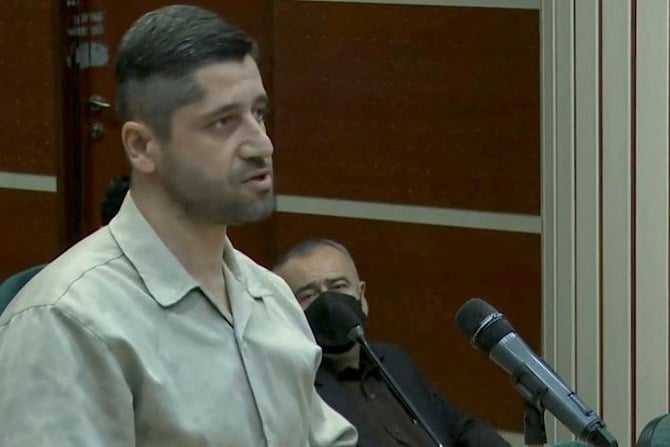
Campaign groups have welcomed the publication of a damning new parliamentary report into the management of brain injuries in sport.
The report, based on a four-month inquiry by the Department for Digital, Media, Culture and Sport, calls for “urgent action by the government to address a long-term failure to reduce the risk of brain injuries in sport”. It is strongly critical of both the Football Association and the Professional Footballers’ Association for “failing to fight hard enough or publicly enough to address the issue of concussion” and recommends an urgent overhaul of concussion management across all grassroots and elite sport in the UK.
“What is astounding is that when it comes to reducing the risks of brain injury, sport has been allowed to mark its own homework,” said the committee chair, Julian Knight MP. “The Health and Safety Executive is responsible by law, however risk management appears to have been delegated to the national governing bodies, such as the FA.
“That is a dereliction of duty which must change. The failure by these sporting organisations to address the issue of acquired brain injury is compounded by a lack of action by government. Too often it has failed to take action on player welfare and instead relied on unaccountable sporting bodies.”
Judith Gates, a founder of the charity Head For Change, described the report “as a turning point, a first step, in addressing the problem openly and taking steps to find solutions”. Gates said that while the report clearly showed that “mistakes have been made” she feels we “need to learn from these rather than apportioning blame. The focus should be twofold: immediate care for players currently suffering but education and awareness of the dangers for future players.”
The former England scrum-half Kyran Bracken, speaking on behalf of the Progressive Rugby group, said: “I truly hope the committee’s findings will be a watershed in the approach to the management and research of concussion in sport and expect to see sporting bodies being held accountable for the duty of care their employees have a right to expect.” Progressive Rugby also called on World Rugby to “urgently address the current elite return to play protocols, which we maintain are not fit for purpose”.
At the elite level the DCMS report criticised UK Sport for running a system in which there is “no overall responsibility to mandate minimum standards for concussion and head trauma” and which “allows sports to be funded as long as their protocols look good on paper”. It also criticised the FA for not taking a stronger, sustained interest in the issue after the coroner’s verdict on the death of Jeff Astle from industrial disease in 2002, and the PFA for not pressuring the FA to do it. At the grassroots level, it criticised NHS England for failing to keep full records on concussion injuries, and for failing to ensure clinicians have the most up-to-date training.
Among its key recommendations are that the government should establish a UK-wide minimum standard definition for concussion as well as a new set of concussion protocols that all sports must use, and that the Health and Safety Executive should work with national governing bodies of all sports to establish a national framework for the reporting of sporting injuries.
It also called for UK Sport to be mandated to take a governance role in assuring that all the sports it funds raise awareness on the dangers of concussion effectively, and for UK Sport to pay for a medical officer with responsibility to ensure the safety of participants at every major sporting event.
Overall, the report recommends a move away from the conservative approach towards research into the issue advocated by the international Concussion in Sport Group, which currently underpins most UK policy, towards a more precautionary approach. It suggests the government convenes its own specialist concussion group every four years to review the existing evidence into the long-term risks of concussion, and also recommends that the government should establish a single fund to co-ordinate and pay for research.
The report is published on the same day as a landmark new study by the Drake Foundation and Imperial College in collaboration with the Rugby Football Union. The study showed that 23% of a group of 44 current elite rugby players had abnormalities in their brain structure, including small tears in their blood vessels and other “white matter” damage.
The Drake Foundation has called for “additional updates to the game’s laws and protocols to minimise players’ exposure to head impacts.” The RFU has promised more research as a priority and pledged to set up “a specialist clinical service for the assessment and management of retired elite male and female rugby players between the ages of 30-55 to individually assess their brain health.”
Richard Boardman of Rylands Law, the firm representing a group of 175 rugby players – including the former England forward Steve Thompson – bringing action against the RFU and other governing bodies, said: “It’s pleasing to see stakeholders with an interest in sport seeing the scale of this problem the same way we do. Namely, that those who have either played or are currently playing contact sports in this country, particularly at the elite level, with brain damage, is at an epidemic level.”
Thompson, a World Cup winner in 2003, has now at 42 been diagnosed with early onset dementia and told the Guardian in December last year: “It’s the rugby that’s put me through this,” adding: “The amount of head bangs I had in training. I was known for it. ‘Oh, he’s having a little sleep, he’ll get up in a minute.’”












